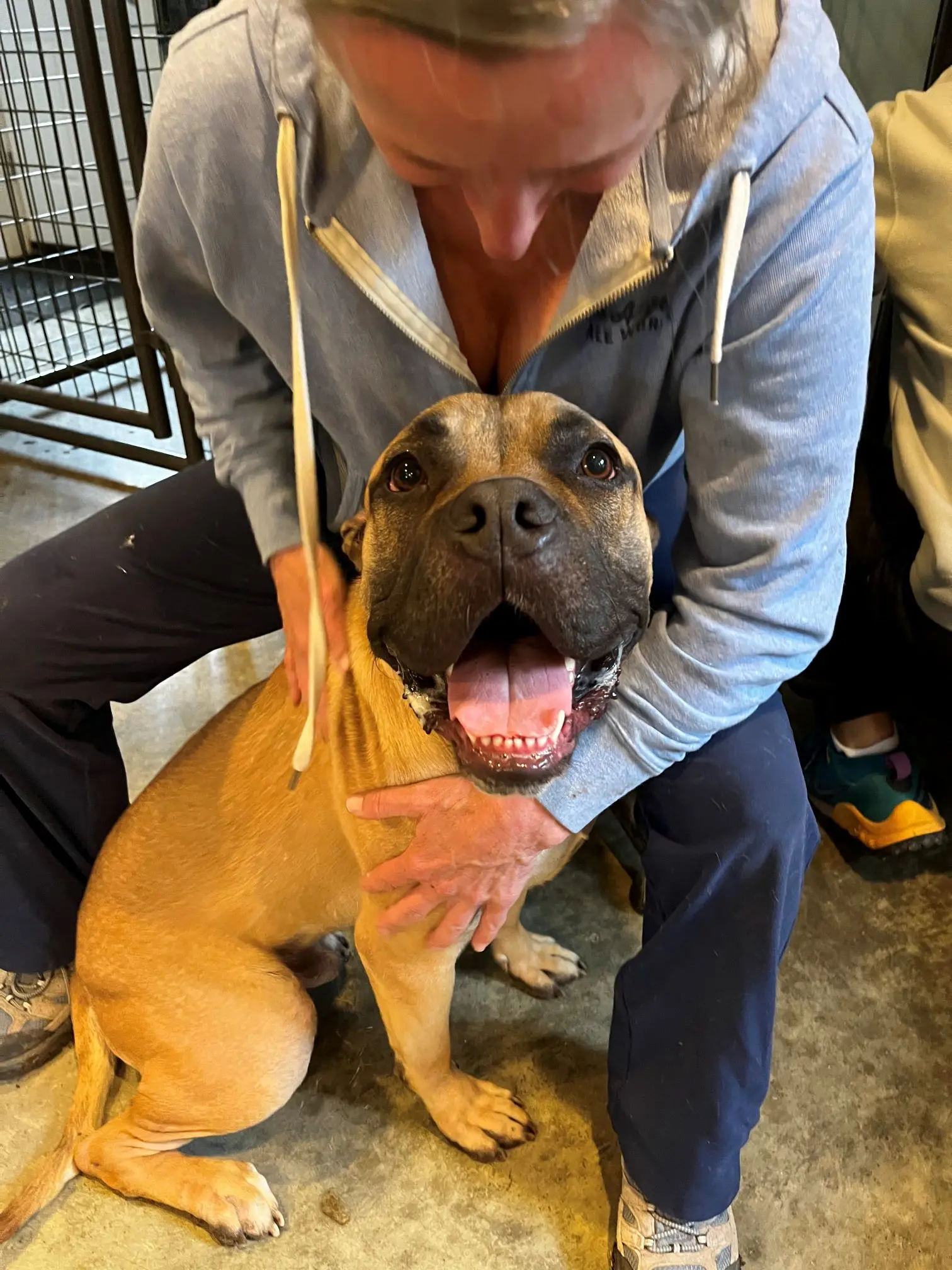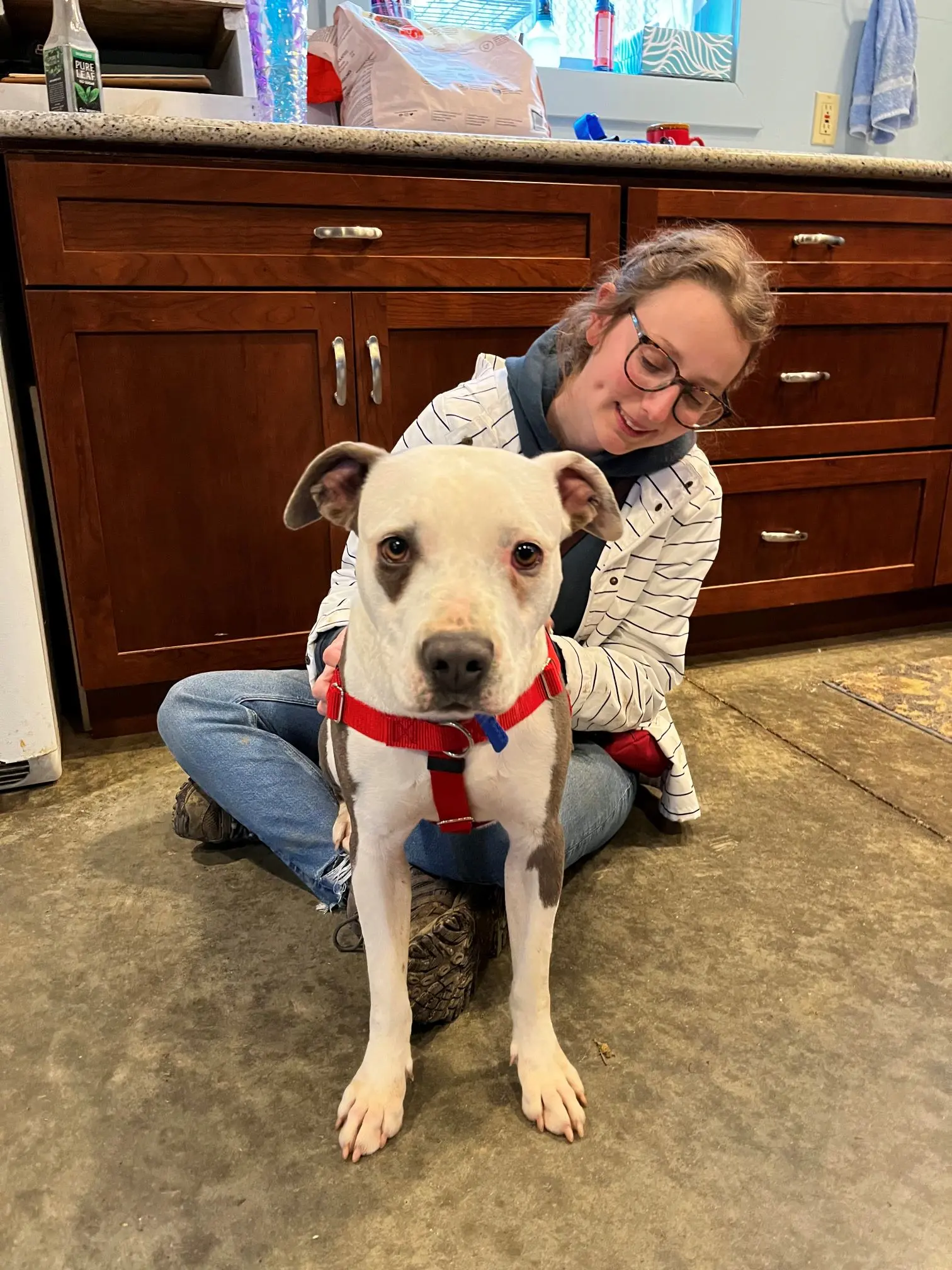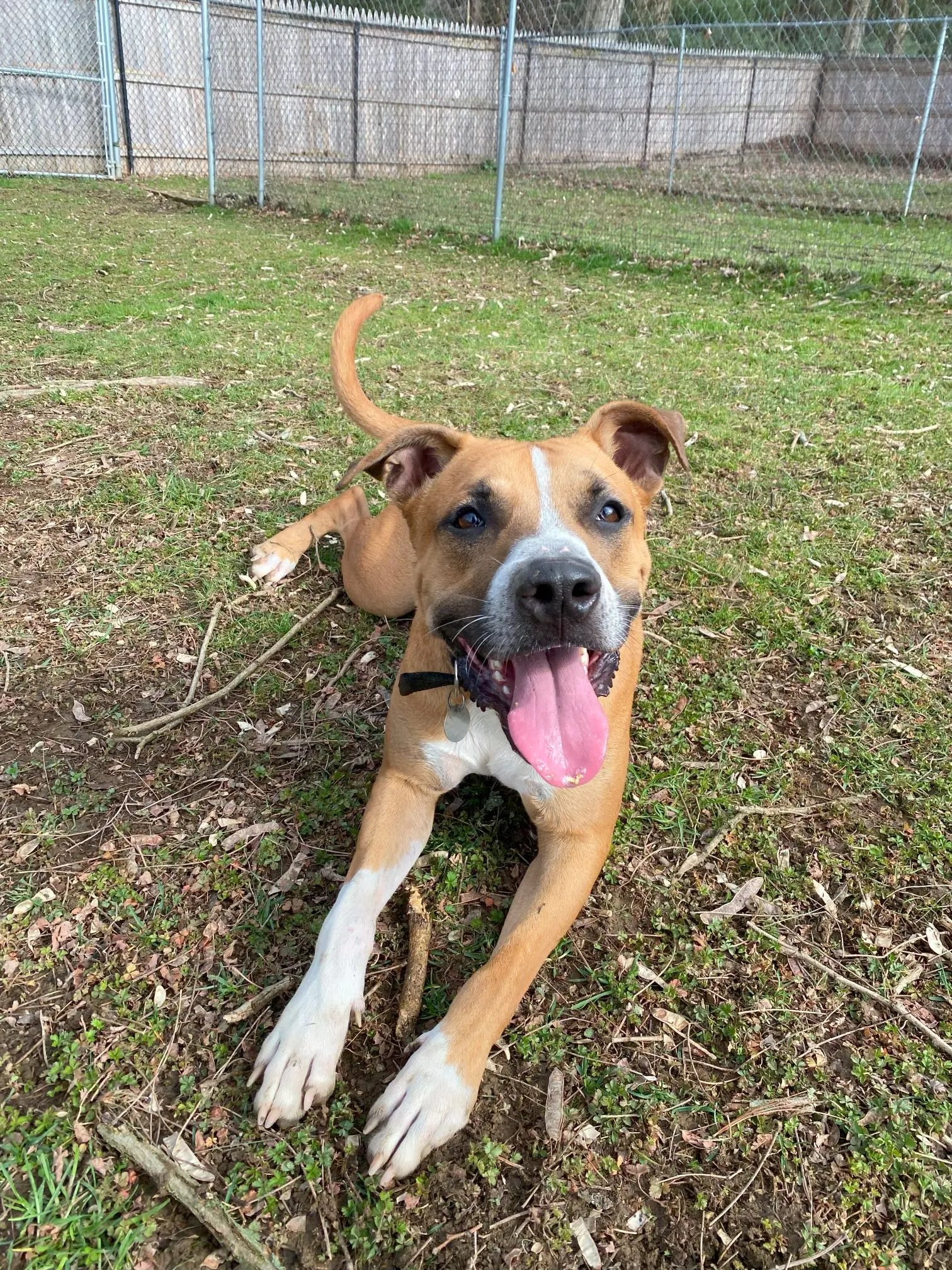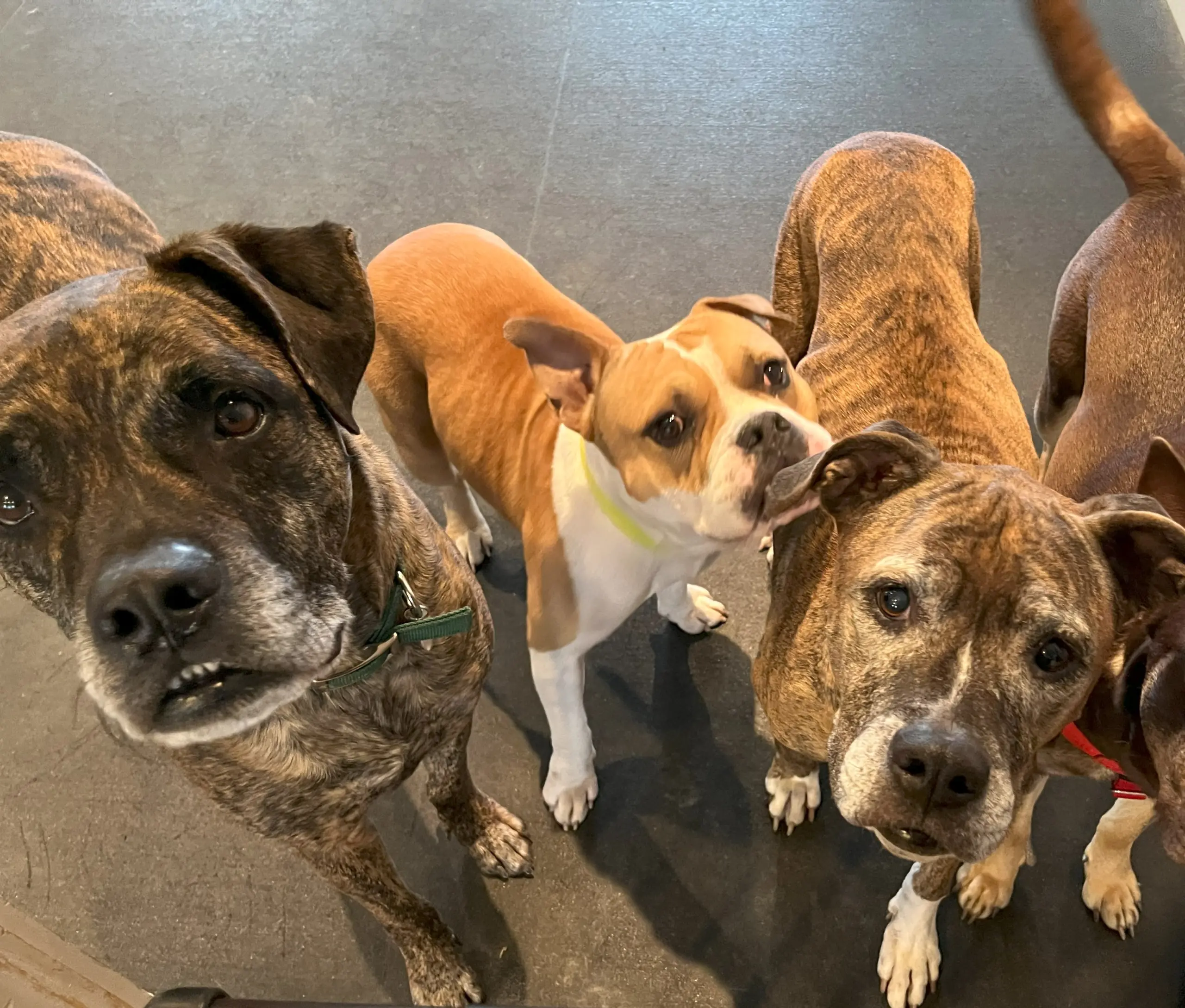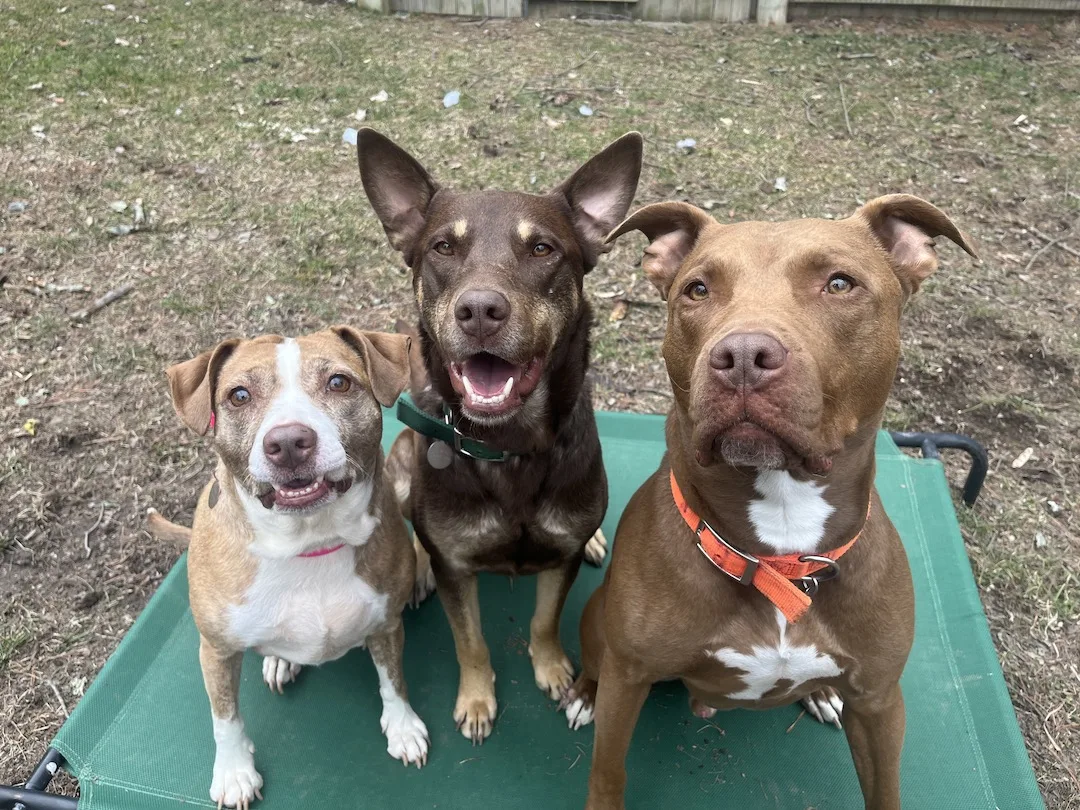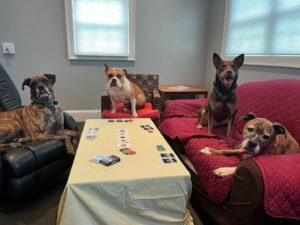In May of 2015, Animal Farm Foundation transported six “pit bull” dogs from Prince George’s County in Maryland to our shelter in New York. The dogs were well-behaved, healthy, friendly, and played well with other dogs. So why did we need to transport them 300+ miles instead of being adopted out of their Maryland shelter?
Because they live in a county that still has an archaic breed ban in place. These dogs, all of varying appearances, behaviors, and breed mixes, were perceived to be “pit bull” dogs. That perception made them illegal in Prince George’s County. They cannot be adopted out of shelters. There are only two outcomes for these dogs: death or transport to a safe jurisdiction.

Prince George’s County’s animal services staff work hard to arrange the latter outcome. Each day numerous dogs, subjectively identified at “pit bull” dogs, come into their shelter. None of them are allowed on the adoption floor. Many are dogs that were loved family pets taken straight from their homes. They were seized, not because they did anything wrong, but simply because of their appearance or breed label.
Now, these family pets are wards of the system.

The staff spends their time and resources making sure that these family dogs have a chance at a fair and humane outcome – adoption – by arranging transports around the country. AFF recently sponsored Aimee Sadler’s Dogs Playing For Life! training for the staff to help them enrich the lives of the dogs in their care and to assist in identifying transport candidates.
During her recent training, Aimee wasn’t surprised to see that there were many “pit bull” dogs that were “rock stars” in the play groups. Calls went out to shelters around the region to help get these highly adoptable dogs out of danger and into adoption programs.
AFF and Fairfax County Animal Shelter were two of the organizations that pulled numerous dogs after seeing Sadler’s play group footage.

Rodney Taylor, the director of Prince George’s County’s animal services facility, publicly opposes the ban for many reasons. The Huffington Post reports that the shelter has a “live release rate” of only 64 percent. This is not a reflection on the shelter’s policies or approach to adoptions. The high euthanasia rate is largely due to the law that bans them from adopting out any dog that is labeled a “pit bull.”
The euthanasia rate would be even higher if the staff didn’t work so hard to make transports a daily reality.

But until the ban is removed by lawmakers or struck down in court, the shelter will be stuck with a live release rate that falls far short of what progressive adoption centers, in areas without breed bans, attain. As Rodney told the Huffington Post:
“Such beautiful dogs come in and we can’t adopt them to families that want to adopt them.”
There are no facts or experts to back up the retention of this ineffective, inhumane law. In 2003, Prince George’s County authorized a task force to examine the results of their ban, which has been in place since 1996. The task force reported that the ban was ineffective, has a negative impact on public safety, stretches animal control and sheltering resources thin, and costs approximately a half million dollars a year to enforce.
That’s right, a half million dollars a year.

In the fiscal year 2001-2002, costs due to “pit bull” dog confiscations totaled $560,000. And that doesn’t even touch the amount of money needed to cover the expenses for utilities, manpower, and overtime spent caring for the dogs. You can read the full report here.
Of course, that was 14 years ago. If we do some simple math and assume that the numbers remain the same, that’s $560,000 a year multiplied by 14 years, which means the current total spent enforcing a ban that doesn’t work could potentially be estimated at: $7,840,000.

The tax payers are footing this enormous bill for a law that does not increase public safety. They’re footing the bill for a law that tears innocent dogs away from loving families. And they’re paying for a law that strains shelter systems and animal control services by misdirecting their time and resources to addressing a crisis that need not exist.
What’s the alternative?
If the breed ban was repealed, that money could be used to enforce effective breed-neutral dangerous dog laws. The very ones the 2003 Task Force recommended. Animal control would no longer need to waste their time seizing safe family pets. Instead, they could focus on addressing problem dog owners (of any breed). Focusing on irresponsible owners would truly make the county safe for all of its citizens. Animal services wouldn’t have to make kennel space for loved dogs freshly torn away from their families. And instead they could use their time and resources to do what shelters are

Animal services wouldn’t have to make kennel space for loved dogs freshly torn away from their families. They could use their time and resources to do what shelters are meant to do: help the dogs that are truly homeless, evaluate them as individuals, and find them new families within their county.
In 2009, after the shelter spent 12 million to build a new facility, Taylor stated:
“There’s one goal: to become the number one shelter in the nation.”
Six years later, with a 64% live release rate and the breed ban still being in effect, Prince George’s County animal services is lagging far behind other shelters nationwide. No matter how hard they work, the ban prevents them from ever being able to achieve their goal.

The breed ban in Prince George’s County is an ineffective and expensive mistake. It is time-consuming and nearly impossible to enforce. As the live release rate proves, it is incompatible with progressive animal sheltering policies that helps dogs find homes. It perpetuates myths, hysteria and fear. It suggests we can accurately
It perpetuates myths, hysteria, and fear. One of those myths is the assumption that we can accurately identify a dog’s breed based on their looks and that a dog’s breed is an accurate predictor of behavior. Because of all of this, the ban jeopardizes everyone’s safety by misdirecting money, resources, and time.

Breed specific legislation denies every resident of Prince George’s County the opportunity to live in a safe and humane community.
When will lawmakers listen to the task force recommendations, given more than a decade ago, and finally remove this failed legislation? When will they free up those wasted millions of dollars to fund breed neutral laws that are proven to keep communities safe? Change must happen now. There’s no more time or money to waste for the families of Prince George’s County.
You can learn more about BSL and building safe communities in our ebooks.

